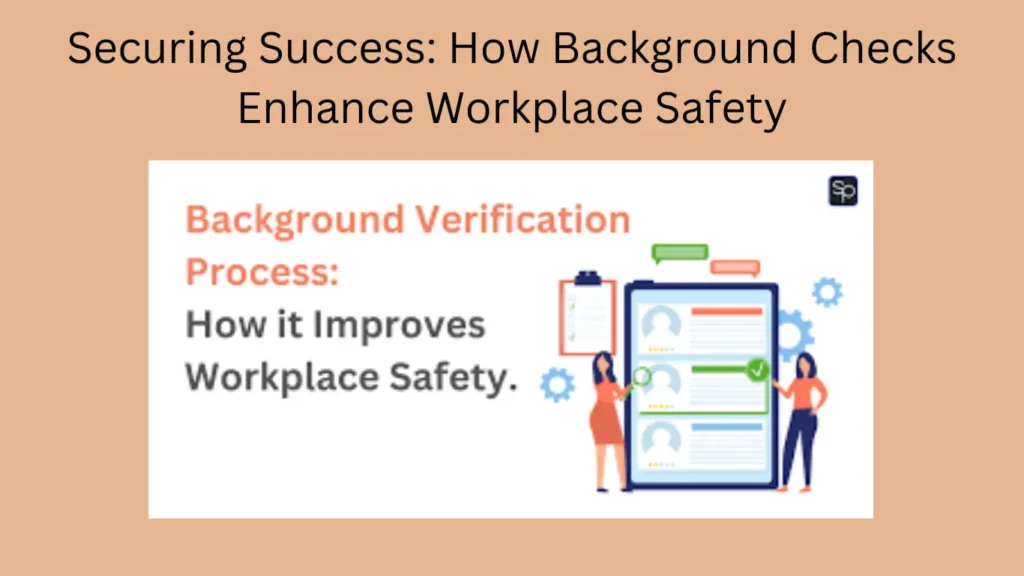Introduction
Workplace safety is a cornerstone of a successful business. Ensuring that employees operate in a secure environment not only protects them but also enhances productivity and morale. One critical tool in achieving this is the use of background checks. This article explores how background checks contribute to workplace safety, their key components, and best practices for implementing them.
The Importance of Background Checks in the Workplace
Preventing Workplace Violence and Harassment
One of the primary reasons for conducting background checks is to mitigate the risk of workplace violence and harassment. By screening potential employees for past criminal behavior or violent tendencies, employers can significantly reduce the chances of hiring individuals who might pose a threat to others.
Safeguarding Company Assets
Background checks help protect a company’s physical and intellectual assets. Screening for financial irresponsibility or previous theft convictions can prevent hiring individuals who might be prone to fraudulent activities or theft.
Enhancing Company Reputation
A safe workplace environment fosters a positive company reputation. Employees are more likely to recommend a company that prioritizes their safety, and clients and customers will trust a business known for responsible hiring practices.
Key Components of Background Checks
1. Identity Verification
- Ensuring that the individual is who they claim to be by verifying documents such as passports, driver’s licenses, or social security numbers.
2. Criminal Record Checks
- Searching for any past criminal activity that could indicate a risk to workplace safety.
3. Employment History Verification
- Confirming previous employment details to ensure the candidate has the experience and qualifications they claim to have.
4. Education Verification
- Checking the authenticity of educational qualifications to ensure the candidate’s credibility.
5. Credit History Checks
- Reviewing financial history, especially for roles involving financial responsibility, to assess trustworthiness.
Benefits of Background Checks for Workplace Safety
1. Reducing Negligent Hiring Risks
- Conducting thorough background checks can protect companies from legal liabilities associated with negligent hiring. By demonstrating due diligence in the hiring process, companies can defend against claims that they failed to provide a safe working environment.
2. Promoting a Safe Work Culture
- Employees feel safer knowing their colleagues have been vetted, which fosters a culture of trust and mutual respect. This sense of security can lead to higher job satisfaction and productivity.
3. Ensuring Compliance with Regulations
- Certain industries are legally required to conduct background checks. Adhering to these regulations not only ensures compliance but also enhances overall safety standards.
Conclusion
By implementing thorough and fair background screening processes, companies can prevent workplace violence, protect their assets, and foster a safe and positive work environment. Prioritizing background checks not only secures success but also builds a foundation of trust and safety for all employees.
For further Inquires Contact Us
FAQs
1. Why are background checks important for workplace safety?
- They help prevent hiring individuals with violent or criminal pasts, reducing risks of workplace violence and harassment.
2. What does a comprehensive background check include?
- It includes identity verification, criminal record checks, employment history verification, education verification, and sometimes credit history checks.
3. How do background checks protect company assets?
- By screening for financial irresponsibility or theft convictions, they prevent potential fraud and theft, safeguarding company assets.
4. Are background checks legally required?
- In some industries, background checks are legally required to ensure compliance with safety and security regulations.
5. How should companies handle the information from background checks?
- All information should be handled confidentially and stored securely to protect candidates’ privacy and comply with legal standards.
